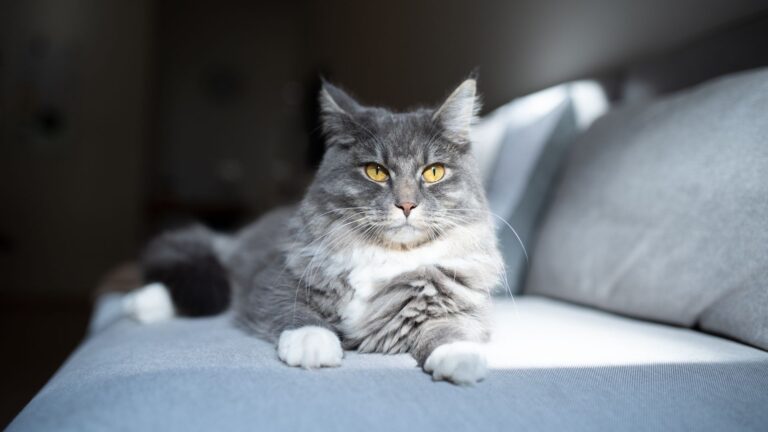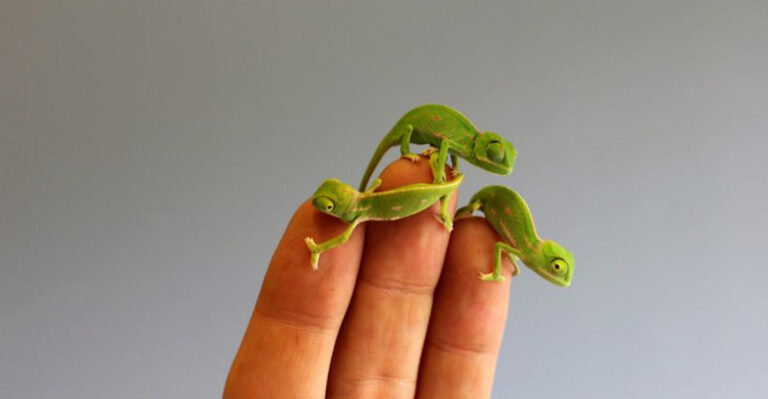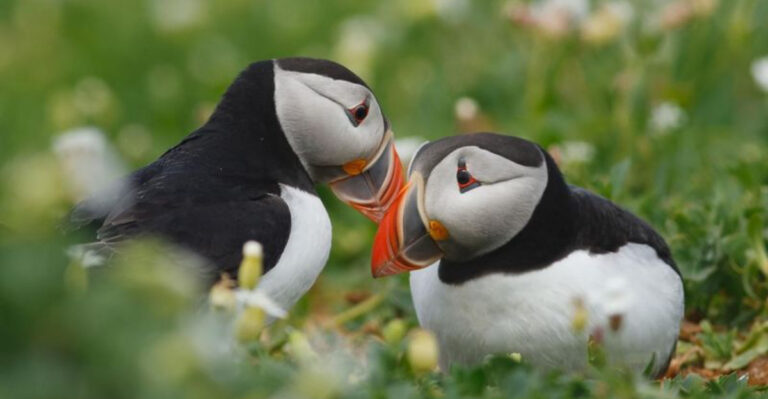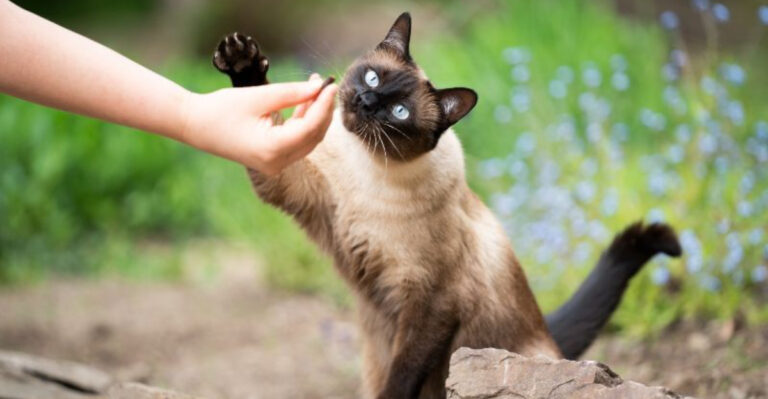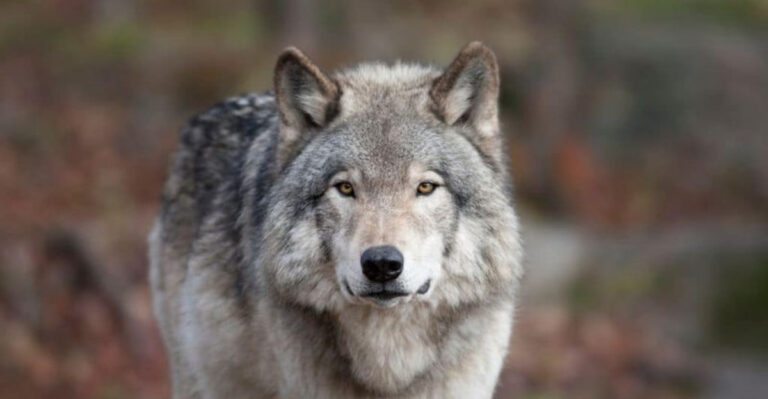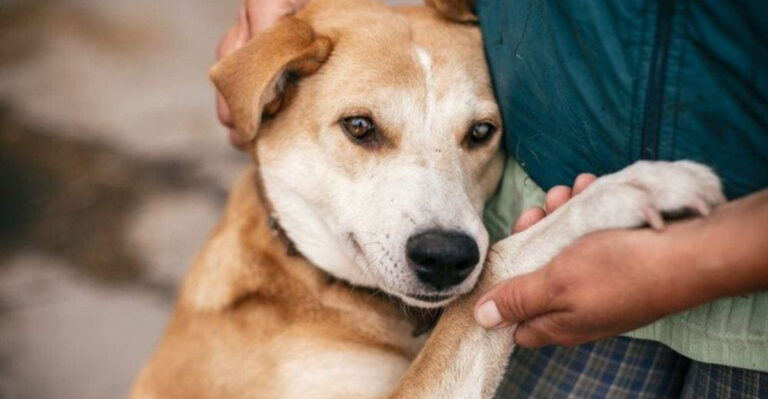13 Cat Breeds That Are Too Wild For The Average Home
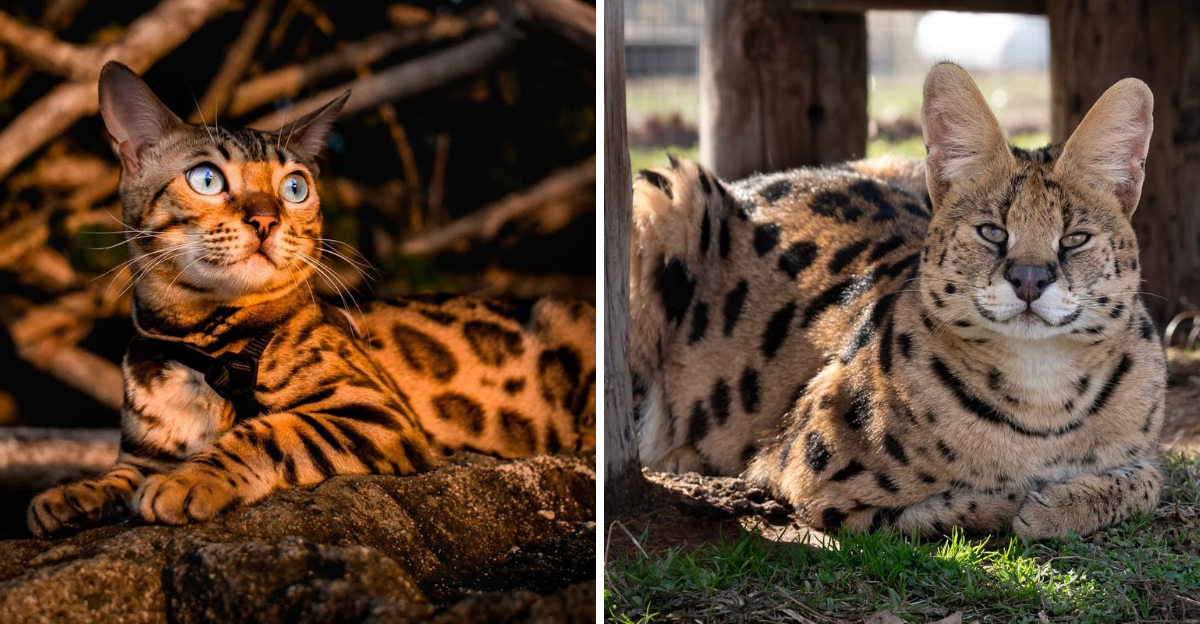
Cats are often seen as the perfect low-maintenance pet for the home, but not all breeds fit this mold. Some breeds possess a wild side that makes them too much to handle for the average pet owner.
These cats may require an unusual amount of attention, stimulation, or have behavioral traits that can challenge even the most experienced cat enthusiasts. Here are cat breeds that, while fascinating, are best suited to those ready for a wild adventure.
1. Savannah Cat
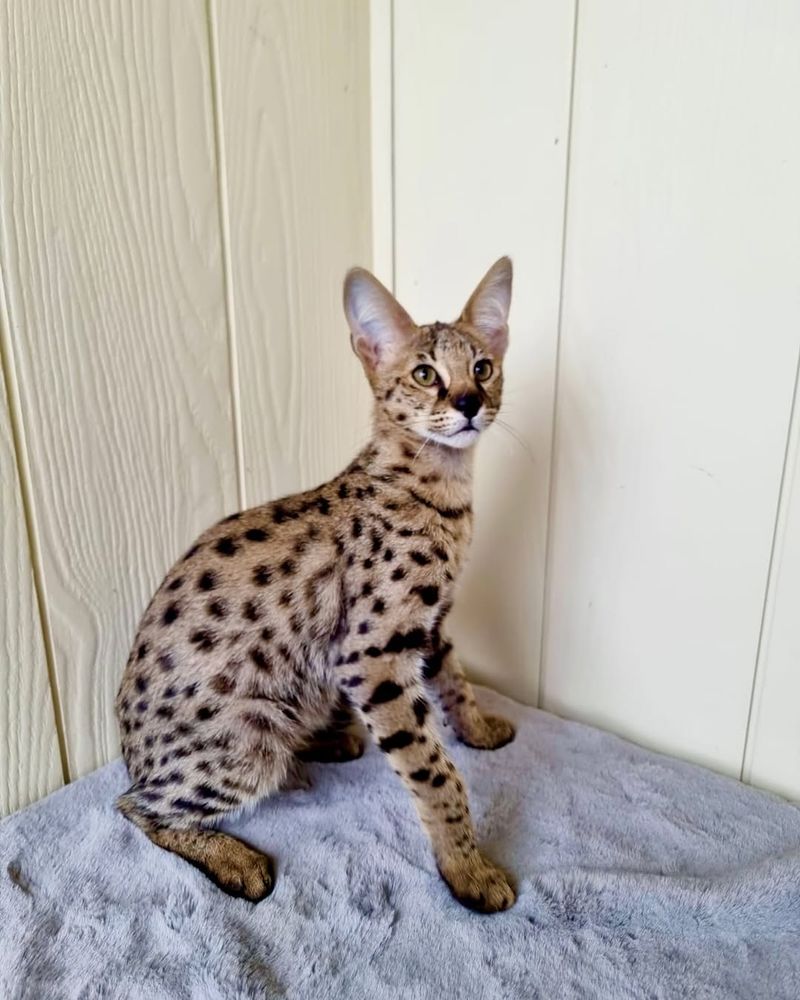
The Savannah cat, renowned for its striking appearance, is a crossbreed between a domestic cat and a serval. This breed exhibits a wild look with its tall, slender frame, large ears, and bold black spots on a golden coat. Despite its exotic appeal, the Savannah cat is not for everyone. In terms of personality, they are highly energetic and require plenty of space to roam and explore.
Unlike more docile cats, Savannahs crave interaction and can become restless without physical and mental stimulation. These cats are known for their jumping ability and can leap impressive heights, often needing tall structures to climb. Additionally, their curiosity knows no bounds, often getting them into mischief around the home.
If you’re considering bringing a Savannah into your life, be prepared for a commitment that extends beyond average cat care. They demand attention, exercise, and enrichment to keep them happy and healthy.
2. Bengal Cat
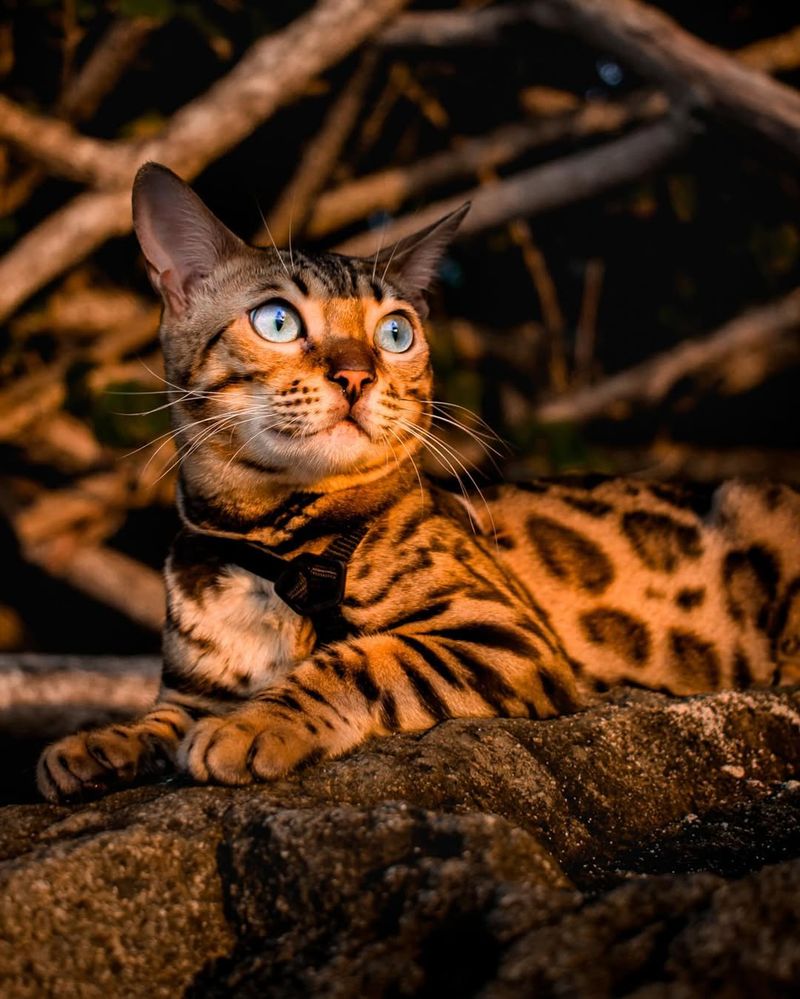
Bengal cats captivate with their exotic leopard-like appearance, boasting a luxurious coat marked with distinctive spots or marbling. Their wild ancestry contributes to their energetic nature and intelligence, making them lively companions. Desiring both mental and physical challenges, Bengals thrive in environments where they can explore and play.
Their curious nature often leads them into unexpected adventures, requiring cat-proofing of your home to prevent mishaps. Bengals are known for their love of water, a trait not commonly found in domestic breeds, and they may surprise you by jumping into showers or sinks.
Despite their beauty, Bengals are not just decorative pets. They require ample time and interaction, and are best suited for owners who can dedicate time to their active lifestyle. If left unstimulated, they may develop behavioral issues, so toys, puzzles, and plenty of playtime are essential for their well-being.
3. Chausie
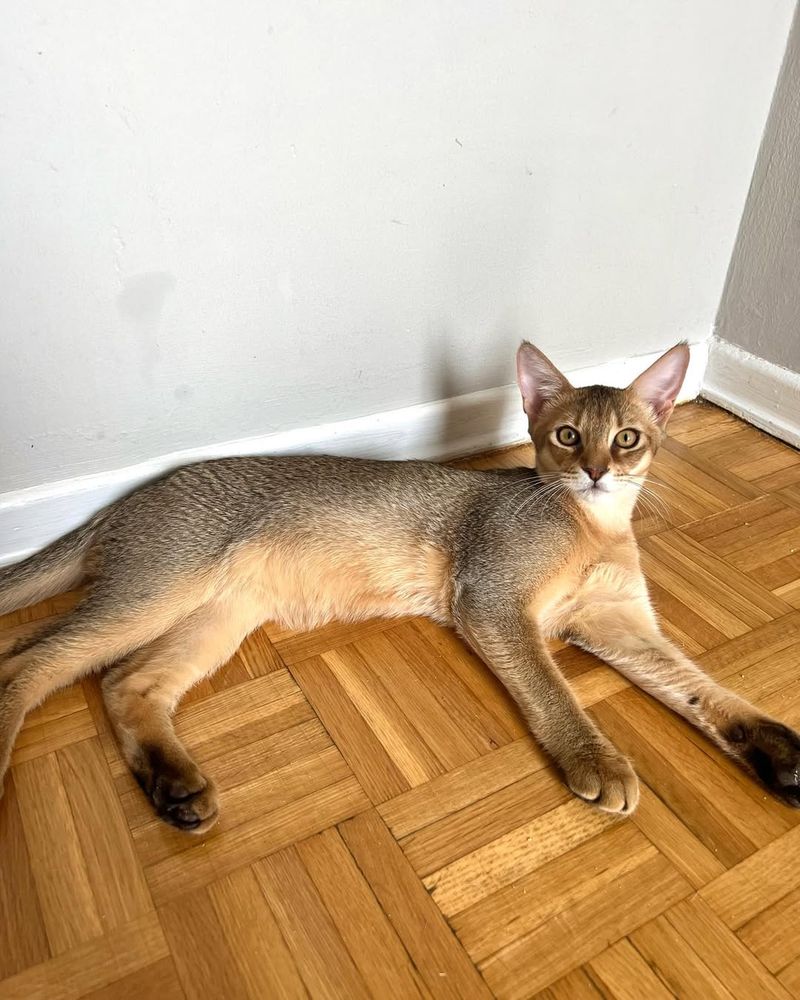
The Chausie cat, with its wild lineage from jungle cats, commands attention with its sleek, athletic build and large, tufted ears. This breed is a whirlwind of energy and curiosity, often needing ample space and stimulation to satisfy its adventurous spirit. Known for their agility and hunting instincts, Chausies thrive in environments that simulate the wild.
Their inquisitive nature can lead them into all sorts of predicaments, requiring owners to be vigilant about their surroundings. Chausies are incredibly social creatures and do not fare well in isolation; they need companionship and interaction to remain content.
Although they form strong bonds with their human families, they require an owner who can provide the time and energy they need. A Chausie can be a rewarding companion for those ready to embrace its lively and spirited nature, but it is not the breed for everyone.
4. Caracal Cat
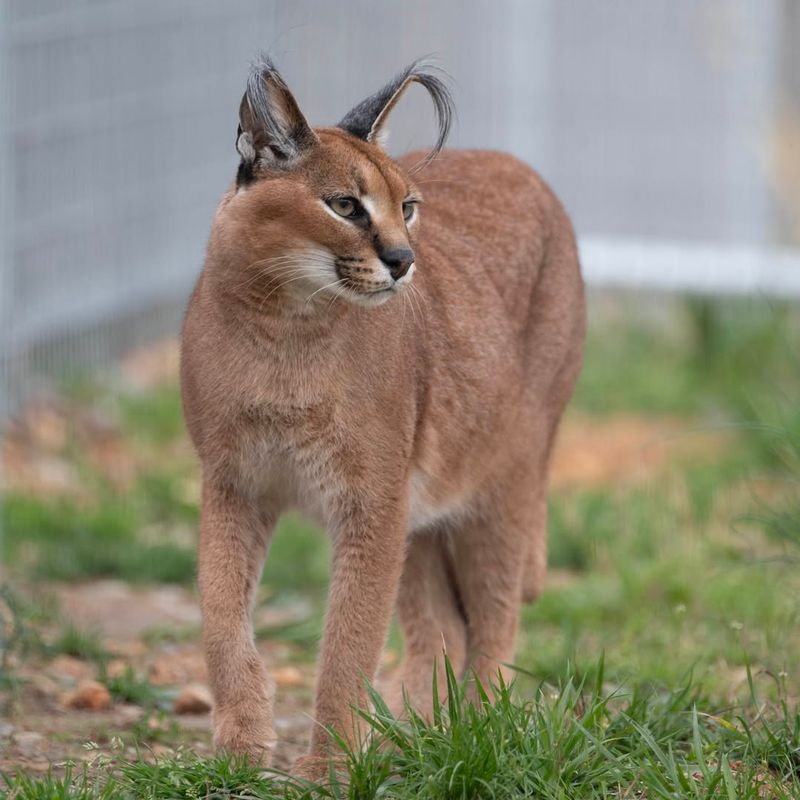
Caracals, with their unmistakable tufted ears and striking facial features, exude a regal presence. Originally from Africa and the Middle East, they are known for their incredible agility and hunting skills, traits that have carried over to their domestic counterparts. Known for their powerful build and acute senses, Caracals require more than the average home environment can offer.
These cats are not only physically demanding but also require a significant amount of mental stimulation to prevent boredom and frustration. Owners need to be prepared for their high energy levels and need for exercise.
While they can form bonds with humans, Caracals are not typical lap cats and require an experienced owner who understands their unique needs. With the right care and attention, they can be fascinating companions, but they are suited only to those who can meet their demanding requirements.
5. Serval Cat
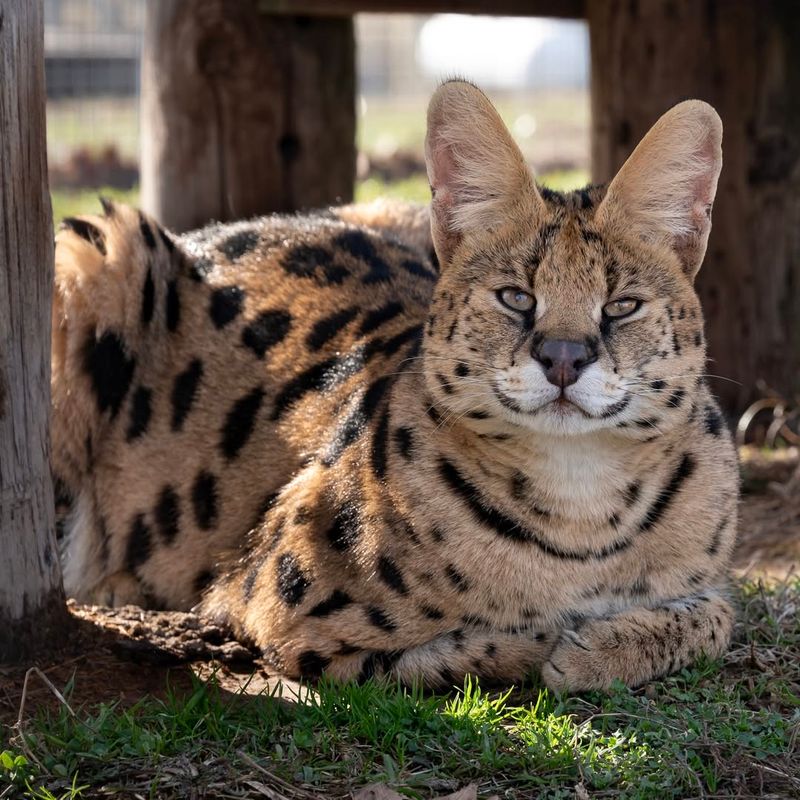
Servals are striking cats known for their long legs, tall ears, and distinct spotted coats, reminiscent of their ancestral African habitat. As semi-wild animals, they possess an instinctual need for expansive environments, making them unsuitable for typical domestic living. Servals require large spaces to roam and explore, and their natural instincts drive them to hunt and stalk prey.
Their behaviors include jumping great heights to catch birds and small animals, often leading to a need for secure outdoor enclosures if kept as pets. This breed’s affinity for water often surprises owners, as they enjoy playing in ponds or pools.
Servals are not ideal for inexperienced cat owners due to their high energy and specific environmental needs. They require commitment and understanding of their wild nature, making them best suited for those who can offer an outdoor space and the time for engagement and enrichment.
6. Bobcat Hybrid
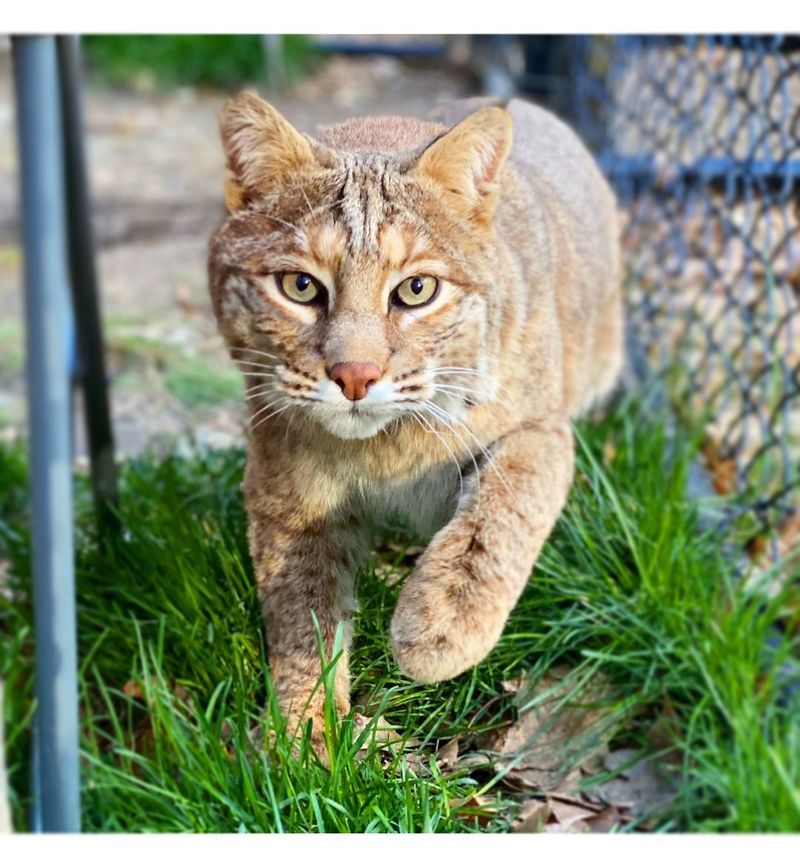
Bobcat Hybrids, with their tufted ears and muscular frames, are striking animals that capture the essence of wild feline beauty. These hybrids often inherit the Bobcat’s strong hunting instincts and independent nature, making them less suitable for a typical home environment.
Their need for mental and physical stimulation is significant, and they require space to roam and explore. Bobcat Hybrids are not lap cats; they appreciate interaction on their terms and may not always seek out human companionship.
Owning a Bobcat Hybrid requires an understanding of their unique needs and a commitment to providing an enriched environment that mimics their wild instincts. They are best suited for experienced owners who can offer the time and space these animals need to thrive. With the right care, they can be fascinating companions, but they are not for the faint of heart.
7. Cheetoh Cat
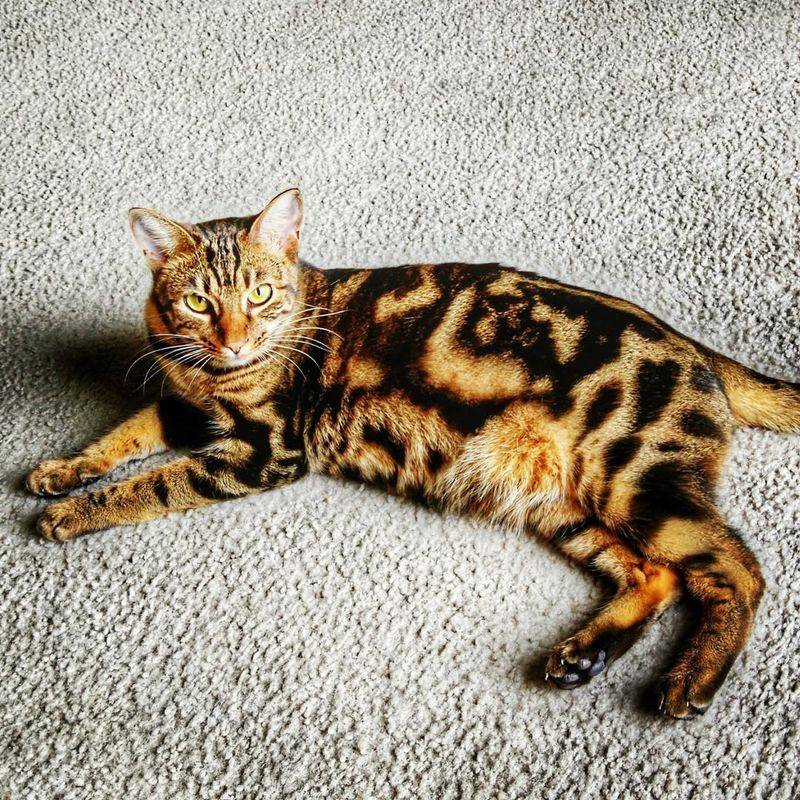
The Cheetoh cat, a blend of Bengal and Ocicat breeds, inherits a captivating appearance with large round spots reminiscent of its wild cousins. Known for their social and outgoing nature, Cheetohs thrive on interaction, making them lively companions for those who can meet their energetic demands.
Despite their affectionate demeanor, Cheetohs are not low-maintenance pets. They require ample playtime and mental stimulation, often engaging in playful antics that keep their owners on their toes. Their curiosity can lead them into trouble if not watched carefully.
These cats are ideal for those who enjoy an active household and can dedicate time to their care. Cheetohs form strong bonds with their human families but need an environment that allows them to express their playful and adventurous spirit. For the right owner, they offer an engaging and rewarding feline friendship.
8. Pixie-Bob
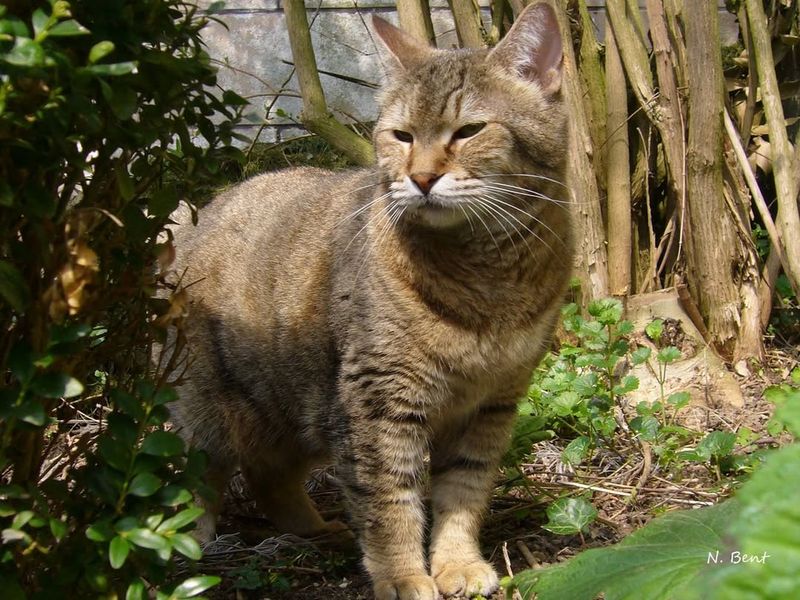
Pixie-Bobs are captivating cats with a wild appearance, noted for their short bobbed tails and tufted ears, traits reminiscent of their rumored Bobcat ancestry. These cats are social and intelligent, often forming strong bonds with their human families, but their spirited nature sets them apart from typical lap cats.
Known for their playful antics and curiosity, Pixie-Bobs require environments that can match their energy and provide ample opportunities for mental stimulation. These cats enjoy interactive play and often excel in learning tricks and engaging in complex activities.
While they are affectionate and enjoy human companionship, Pixie-Bobs are best suited for owners who can dedicate time and attention to meet their needs. They thrive in households where they are included in daily activities, offering a dynamic and enriching feline experience for those who embrace their lively spirit.
9. Ocicat
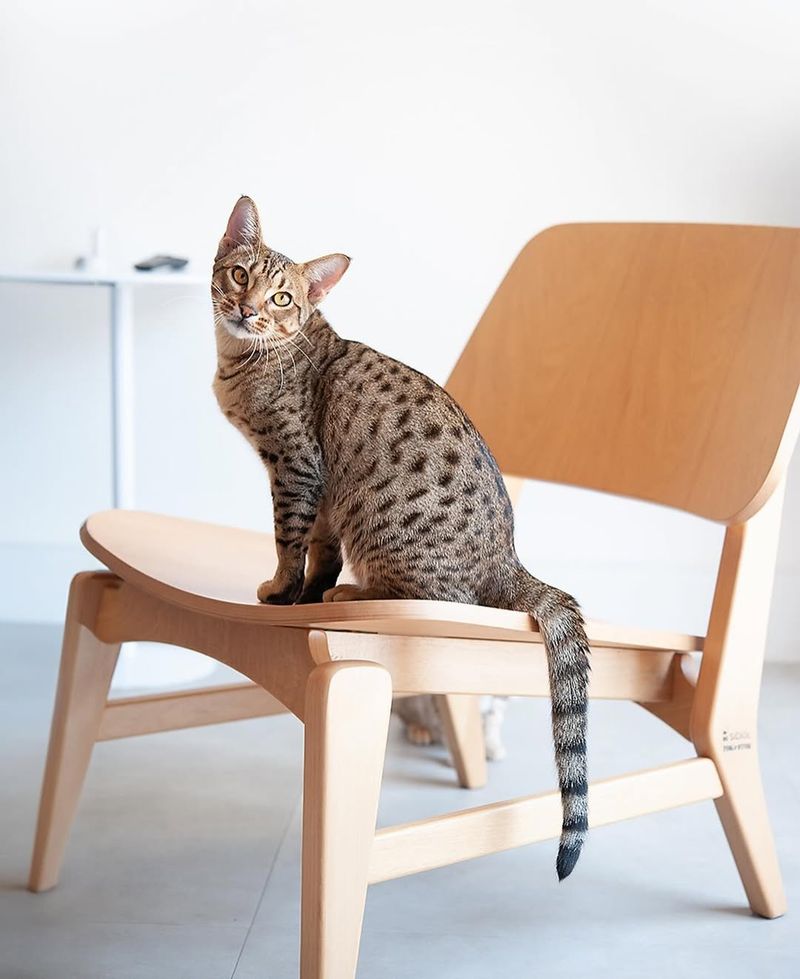
Ocicats, with their striking spotted coats, exude an exotic charm without any wild ancestry. Developed to resemble ocelots, they are fully domestic but possess a playful and energetic personality that demands attention.
These cats are highly social and thrive on interaction, making them perfect companions for active households. Their intelligence allows them to learn tricks and engage in activities that challenge their minds, but they also require regular play to keep them satisfied.
Ocicats form strong bonds with their families and enjoy being part of the action, whether it’s playing games or simply lounging nearby. They are ideal for owners who can provide the time and engagement they crave, as neglect can lead to boredom and behavioral issues. For those ready to embrace their vibrant character, Ocicats offer a delightful and rewarding pet experience.
10. Norwegian Forest Cat
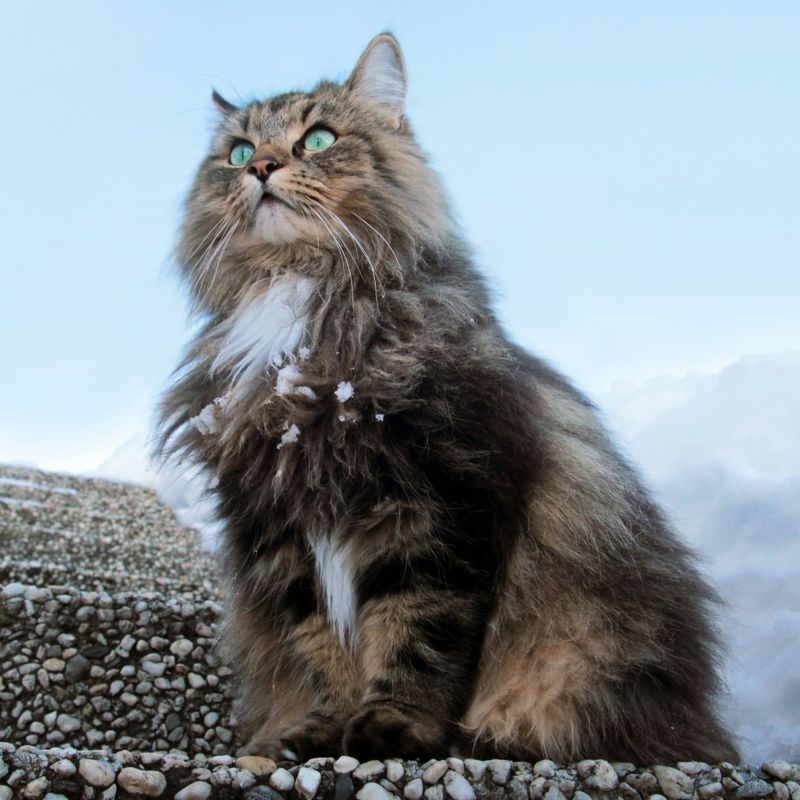
Norwegian Forest Cats, with their luxurious coats and sturdy builds, are reminiscent of the mythical cats that roamed the Scandinavian wilderness. Despite their rugged appearance, they are gentle giants, known for their affectionate and friendly nature.
These cats love to climb and explore, often found perched high on shelves or trees. Their playful demeanor requires environments that can offer vertical spaces and interactive play to satisfy their curiosity. Norwegian Forest Cats are particularly fond of engaging with their human companions, often seeking out interaction and affection.
While they adapt well to family life, they do require regular grooming to maintain their thick coats. Owners who can provide the time and care they need will find them to be loyal and loving pets. For those who appreciate their majestic appearance and engaging personality, Norwegian Forest Cats offer an enriching and delightful companionship.
11. Siberian Cat
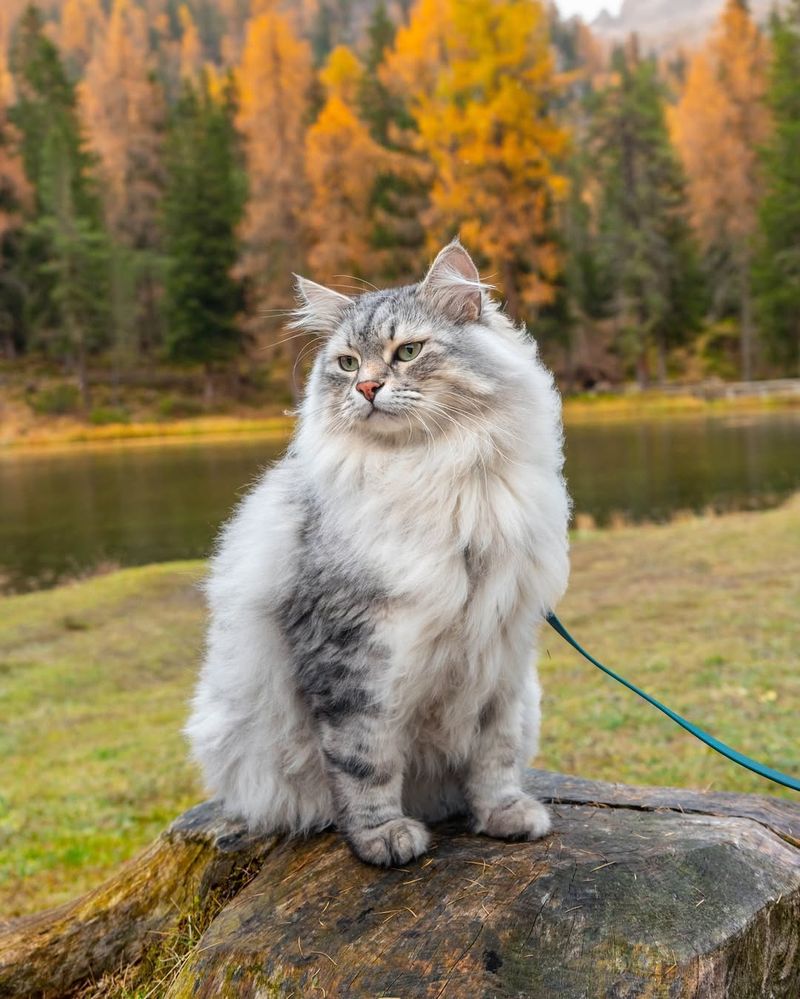
Siberian Cats are known for their robust builds and luxurious fur, adapted to withstand the harsh climates of their native Russia. Despite their wild appearance, they possess a charming and affectionate personality, making them wonderful companions for those who can meet their needs.
These cats are playful and intelligent, often involving themselves in the daily activities of their families. They require environments that offer stimulation and engagement, thriving in homes where they can explore and play.
Siberians are known for their problem-solving abilities and can be trained to perform tricks and games. While they are generally easygoing, their coats require regular grooming to prevent matting. Owners who appreciate their lively and loving nature will find them to be loyal and entertaining companions, as they form strong bonds with their human families.
12. Abyssinian Cat
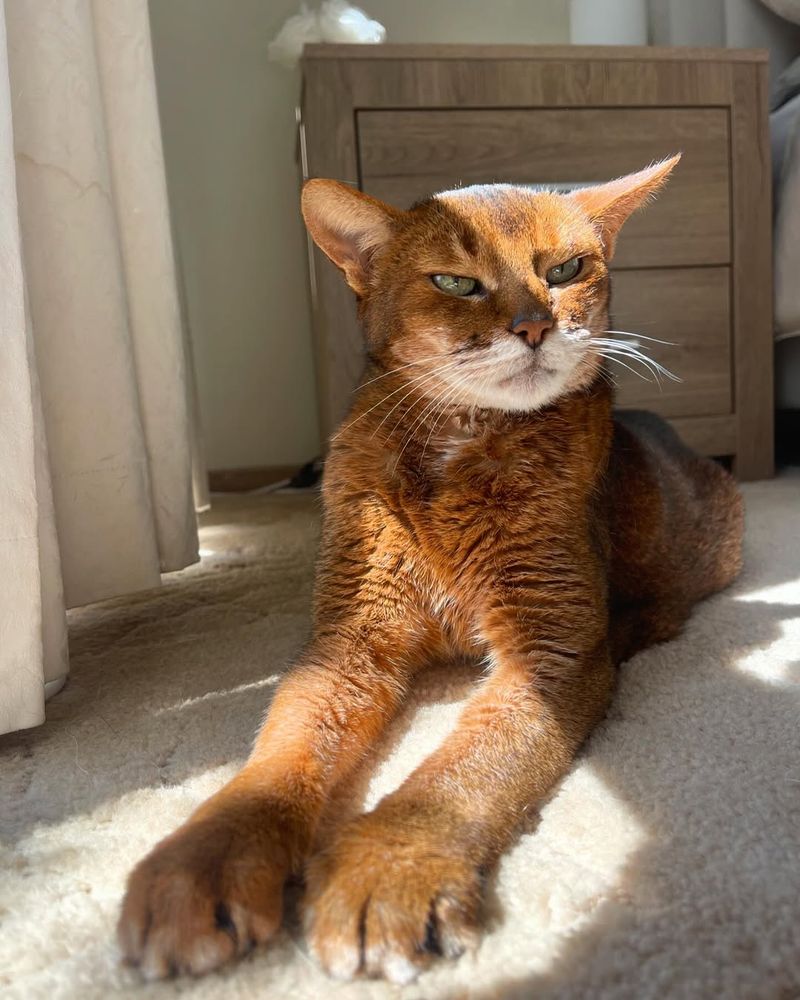
Abyssinian Cats, with their sleek ticked coats and slender frames, exude elegance and grace. Known for their lively personalities, they are among the most active and curious of all cat breeds, constantly seeking out new adventures and stimuli.
These cats are highly social and thrive in environments where they are involved in the day-to-day activities of their families. Their intelligence and curiosity require mental and physical challenges, making interactive play and puzzle toys an excellent choice for their enrichment.
Abyssinians form strong bonds with their owners and are often described as ‘people-oriented,’ enjoying attention and companionship. They are best suited for households that can match their energy and provide the engagement they need to flourish. For those who appreciate their spirited nature and affectionate demeanor, Abyssinians offer an engaging and dynamic pet experience.
13. Maine Coon
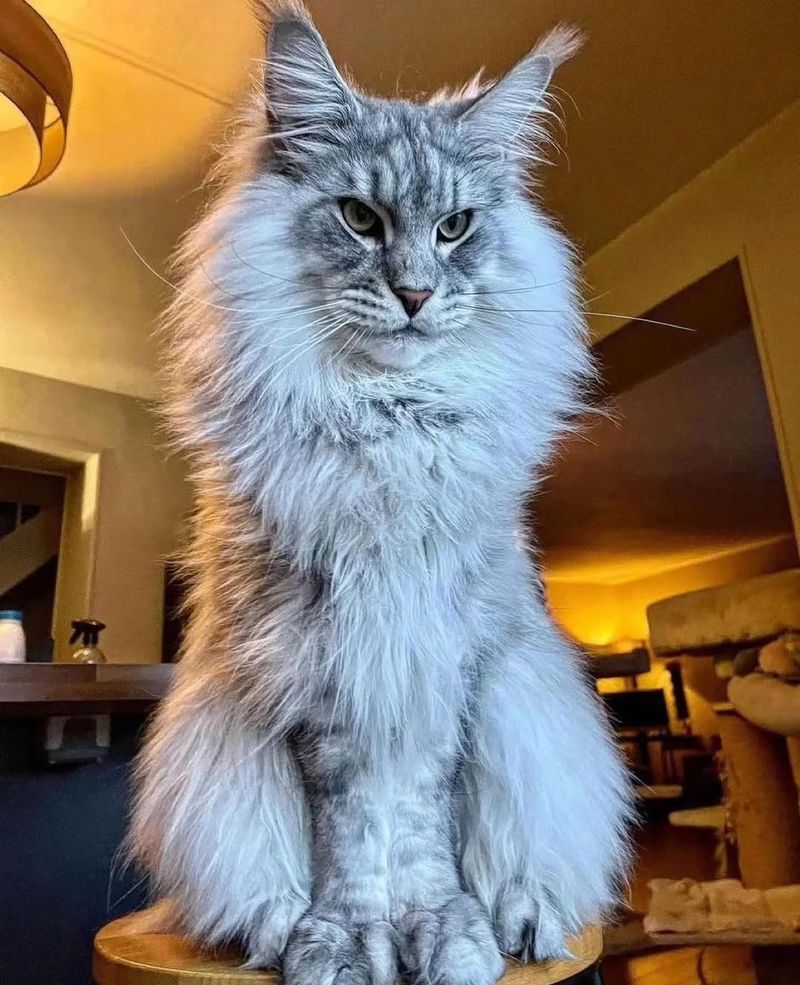
The Maine Coon is the largest domesticated cat breed, often weighing up to 18 pounds. These gentle giants are known for their affectionate nature and playful demeanor. Their thick, water-repellent coat and tufted ears give them a wild appearance.
Despite their size, Maine Coons are incredibly friendly and good with children and other pets. They’re intelligent and can be trained to perform simple tricks. However, their size requires space, and their coat needs regular grooming to prevent matting.
Ideal for spacious homes, Maine Coons are perfect for owners who appreciate a cat with a dog-like personality.

